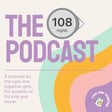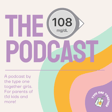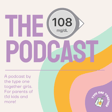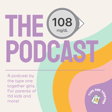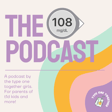
Episode 62- Eating Disorders & Our Complex Relationship With Food
Lauren Newman (RD, LD, CDCES, CEDS) brings so much knowledge around the topic of eating disorders and complex relationship to food for those of us living with type 1 diabetes. There are so many tangible takeaways in this episode.
*TRIGGER WARING - eating disorders are discussed in this episode**
Lauren's practice: https://www.laurennewmanrd.com/
IAEDP provider search: https://members.iaedpfoundation.com/search/custom.asp?id=4255
Ellyn Satter Division of Responsibility:https://www.ellynsatterinstitute.org/how-to-feed/the-division-of-responsibility-in-feeding/
https://www.ellynsatterinstitute.org/how-to-feed/child-feeding-ages-and-stages/
ADA Therapist directory: https://my.diabetes.org/health-directory
TYPE ONE TOGETHER --
Instagram: https://www.instagram.com/typeonetogether/
Tiktok: https://www.tiktok.com/@typeonetogether
Amazon Storefront: https://www.amazon.com/shop/typeonetogether
Website: www.typeonetogether.com
T1D Diagnosis: Made Simple (The Course): https://typeonetogether.thinkific.com/courses/t1ddiagnosismadesimple
T1D Babysitter List: https://stan.store/typeonetogether/p/t1d-babysitter-resource
Team Together: https://www.typeonetogether.com/teamtogether
Super Parents Community: https://honeyhealth.app.link/28gQmJjyDsG
Facebook Group: https://www.facebook.com/groups/typeonetog
